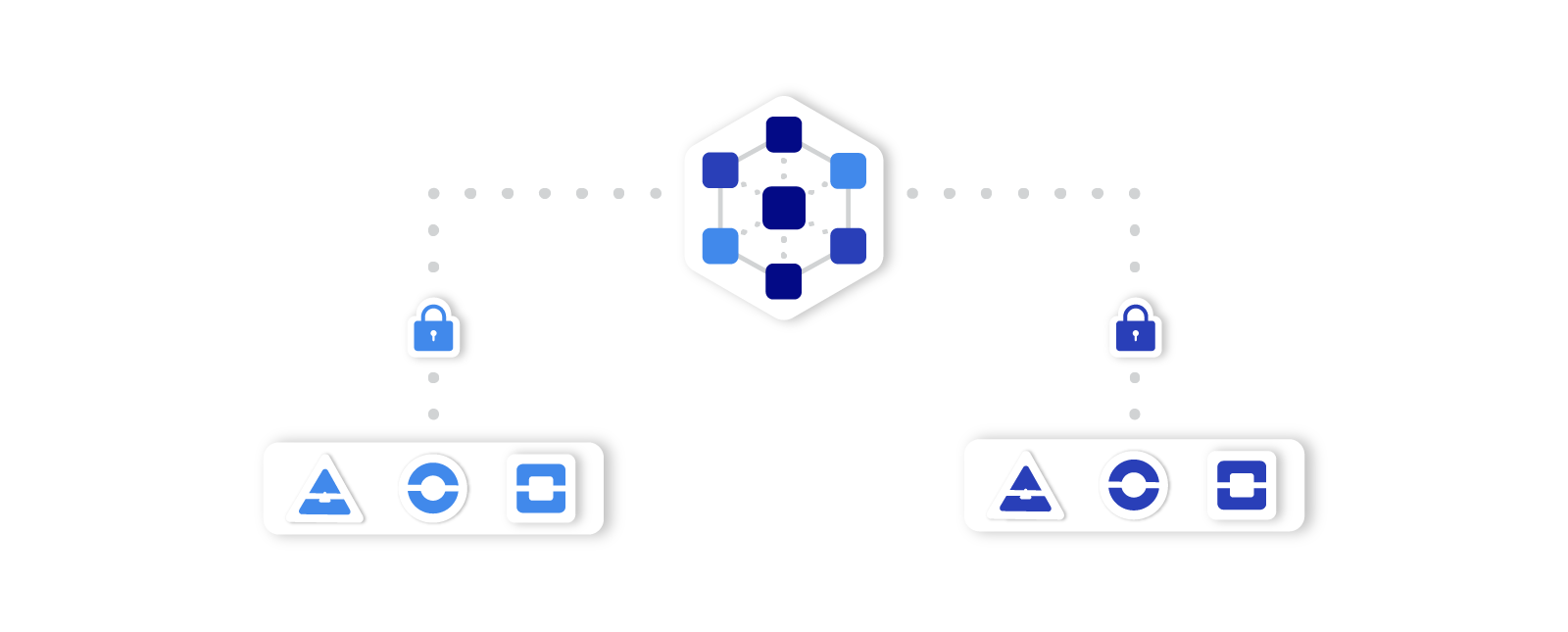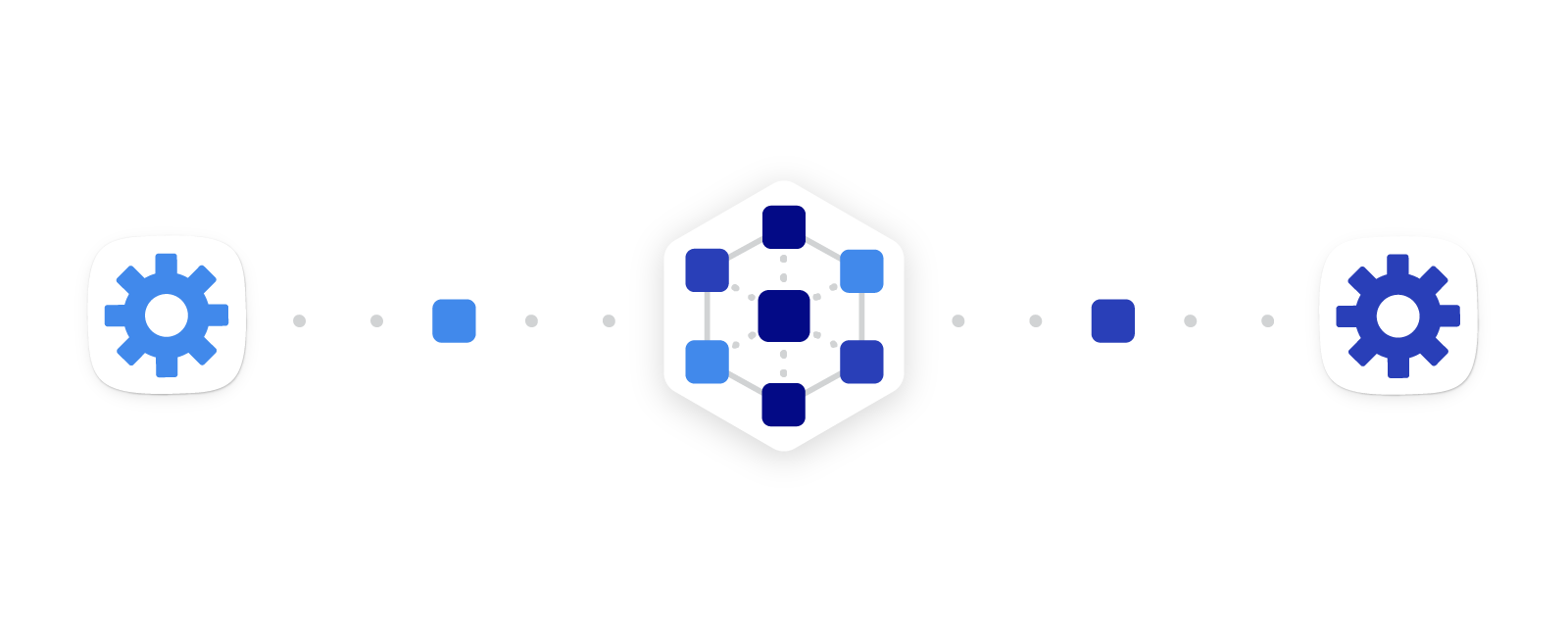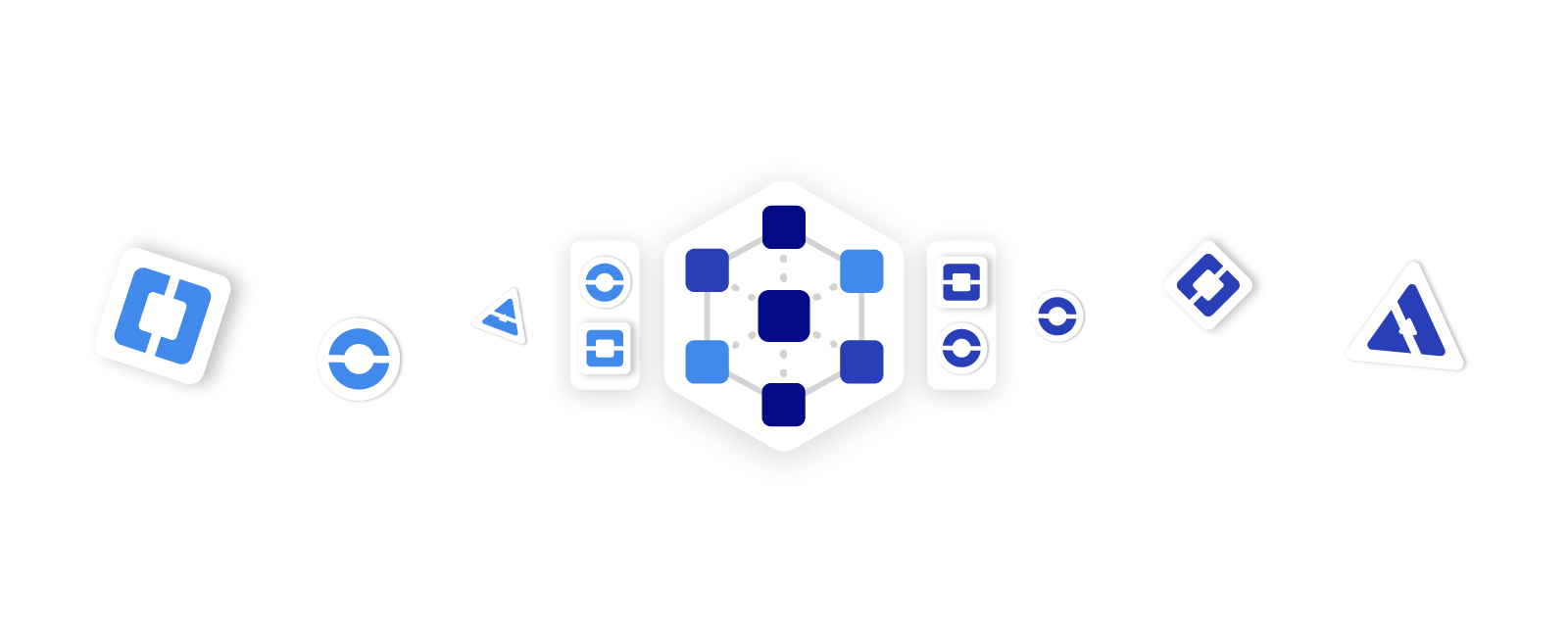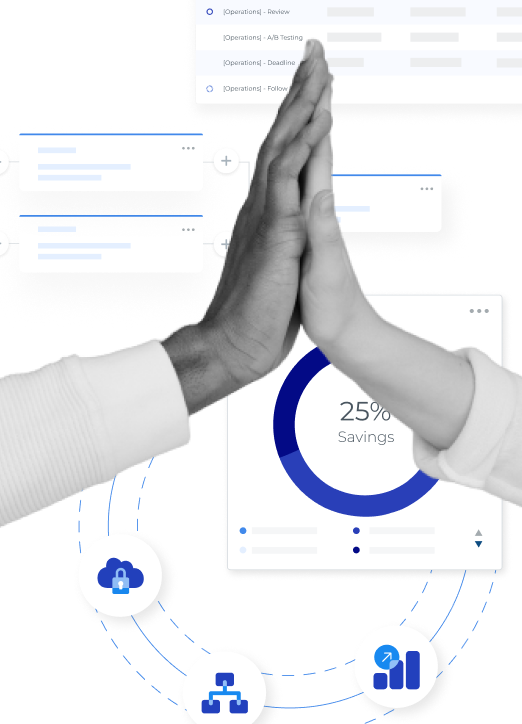Blockchain technology and Web3 have driven innovation across industries and are at the forefront of the AI revolution. Together, they connect apps, systems, and data, providing AI with the information it needs to function and deliver on its promise to improve our daily lives.
In this article, we will explore how the integration of blockchain and Web3 is transforming how we interact with technology and data and how it is helping to bring about a more decentralized and secure future for AI.
We will delve into the fundamental concepts behind blockchain and Web3, their application in the AI space, and how this integration opens new opportunities for developers, entrepreneurs, and businesses. Join us as we journey through the blockchain, Web3, and AI worlds and discover how they are shaping the future of technology as we know it.
Building Blocks of Web3 Technology
Blockchain technology and Web3 are interrelated, creating a more open, decentralized, and secure internet. Technologists developed blockchain technology to decentralize applications, provide secure data storage and transfer, increase data transparency, and allow for the self-custody of digital assets.
By introducing new layers of the required technologies, such as searchability, consensus mechanism, and execution coatings, Web3 allows usage through an interconnected series of systems with built-in security protocols.
Think about it as laying roads. Blockchain provides the layers for communication between parties, where transactions (or information) can be sent or received safely without third-party interference or censorship.
On top of that road are various businesses (or applications) using these pathways to complete tasks (think payment systems or messaging apps). Web3 combines all these components and builds infrastructure to ensure they work as intended.
That also helps increase scalability, thus allowing more users access to decentralized services, improving efficiency, and reducing friction points such as trust issues with centralized platforms.
Many large companies have recognized the potential of blockchain and Web3 and adopted these technologies in various ways. One of the most prominent adopters is Walmart. The retail giant is leveraging blockchain to provide customers with secure end-to-end traceability to keep their food supply safe. Its blockchain system helps identify where their food arrived, alerting them at every delivery stage.
Microsoft has also adopted blockchain and Web3, focusing on tools such as Ethereum and IOTA that enable better data transparency and security while providing seamless solutions for API integrations.
Moreover, several banking institutions have embraced these technologies for exchanging currency, transferring funds across borders, and disintermediating existing payment systems. JP Morgan has developed its proprietary blockchain-based platform, Quorum, designed for financial applications that seek to improve their economic ecosystem’s overall security and transparency.
Through Web3 technologies, Quorum provides immutable data that can be used to record transactions, settle payments, and secure digital assets in a trustless environment free from external interference. Furthermore, they are learning how blockchain can speed up and lower the cost of remittance payments.
Web 3.0 Breathes Life into AI
In recent years, significant advances have been made in AI technology, significantly expanding its applications. Natural language processing (NLP) enables technology users to converse with machines through natural languages such as speech and written text.
Computer vision allows computers to recognize objects through digital images or videos. Robotics focuses on designing and developing robots that can interact with their environment to perform complex tasks without human supervision. Additionally, machine learning (ML) algorithms have become more sophisticated over time, which allows faster decision-making processes based on prior knowledge or experience obtained during training sessions.
Limitations of AI Technology
Despite the various breakthroughs made in AI, limitations still need attention before they can reach their full potential. Current AI technology needs to help understand abstract concepts as it is heavily dependent on input data which must be accurate to yield valuable results.
Interpreting data is one of the most significant challenges modern AI solutions face as they rely on up-to-date datasets with labels covering all scenarios needed for decision-making processes.
Moreover, while computer vision can accurately identify objects through images or videos, it may need more contextual information gathered during training when new things appear in its environment. Even with deep learning algorithms and massive amounts of data, AI systems cannot achieve complete autonomy or understand complex relationships between domains.
The promise of Web3 and Blockchain
However, the emergence of Web3 technology alongside blockchain presents a promising opportunity for overcoming these limitations. By decentralizing data storage and processing capabilities, Web3 allows for greater interoperability between applications and systems while maintaining user privacy.
Blockchain technology, on the other hand, provides a secure and transparent way of storing and sharing data that AI systems can easily access. It also enables greater trust among parties involved in an AI system since all information is in an immutable ledger.
Web3 and blockchain provide a robust foundation for building scalable AI systems with better accuracy and efficiency in securely processing large volumes of data without compromising user privacy. Additionally, this combination enables more transparent decision-making processes, where individuals can trace each step taken by an AI system. That is important when making decisions with consequences, as it helps build user trust.
The Future of AI
The future of AI lies in combining cutting-edge technologies like Web3 and blockchain to push past current limitations. By doing so, we can unlock the full potential of this transformative technology while ensuring that all stakeholders benefit from enhanced productivity and improved decision-making processes while maintaining privacy at all levels.
Is This the End of API?
Blockchain technology is paving the way for a more secure, transparent, and efficient system of integrating apps. While APIs play a crucial role in app integration, their complexity and development cost make it harder to achieve seamless app functionality. That is where blockchain comes in—it offers an unparalleled solution that changes the game regarding app integration.
With its decentralized ledger system, blockchain enhances security by providing tamper-proof data storage. Any transfer of data or stored value cannot change within the blockchain network without detection, so users guarantee that their data is secure and their transactions are accurate.
Transparency is another key benefit of integrating blockchain into app functionality. The distributed ledger ensures that all parties involved in a transaction can see the details and progress of the trade in real-time. That eliminates opaque processes and increases transparency among all parties involved.
While blockchain may not entirely replace API in-app integration processes, it certainly has the potential to simplify them significantly by offering seamless interoperability across different systems. Through advanced cryptographic algorithms, blockchain can weave together multiple apps and integrate them securely through hashed encryption methodologies.
Data Preparation Matters
As AI and Web3 technologies evolve, businesses must ensure that their data and software are ready to capitalize on these breakthroughs. To achieve this, companies must structure their data to allow AI to access them easily while simultaneously building software that can integrate with decentralized networks and Web3 technologies.
Organizing data enables businesses to use large amounts of information daily. Advanced computing systems such as AI or ML models optimize this collected data for processing. Doing so can extract business insights more quickly and accurately while uncovering potential opportunities in their data.
The Importance of Data Preparation
For a company to benefit from AI, it must categorize its data within a relevant subject matter. By organizing information semantically through knowledge graphs and finding the connections between datasets, companies can feed information into ML models for improved decision-making. Ultimately, companies need to make sure that their data is accessible and actionable.
By taking the proper steps, businesses can enable AI algorithms to access their datasets and maximize the impact of Web3 technologies. The ability to collect actionable insights through machine learning while interacting securely with blockchain-based systems empowers enterprises to make better decisions promptly, enables automation processes, and reduces costs.
The Competitive Advantage of Data Preparation
Businesses that invest in tools centered on categorizing or arranging vast amounts of unstructured data suitable for seamless integration within decentralized ledgers will always have an easier path to strategic advantages in the future. Those who invest in data preparation and software will be better positioned than their competitors with optimized datasets that feed decision-support tools powered with AI insights.
The Power of Blockchain and Web3
The combined power of blockchain and Web3 drives a significant technological industry shift. The decentralization, security, and transparency provided by blockchain technology are merging with the privacy and interoperability features of Web3 to create a new standard for digital innovation.
By enabling secure and transparent data sharing, this revolutionary technology sets the stage for the AI revolution and reshapes technology’s future. As we continue to explore the limitless potential of blockchain, Web3, and AI, we can expect to see even more groundbreaking developments that will change the game for good.
At Kizen, we are here to help you make this transition to AI with an industry-tailored, data-forward platform ready to supercharge your business’s data.
We have the expertise to organize and activate your data without disrupting your current operations and the resources to integrate with your existing software applications seamlessly. Connect with us on our website, and we’ll schedule a time to chat.











